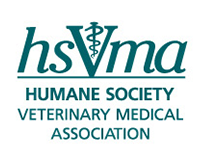| Tampa Area Dog Owners Urged to Take Precautions during Flu-like Virus Outbreak |
| Monday, November 11, 2013 03:56 PM |
|
Last week, Hillsborough County Animal Services announced that several dogs at its shelter tested positive for respiratory coronavirus and pneumovirus. Dogs at the shelter were tested as part of a Cornell University research study. Barry Kellogg, VMD, HSVMA’s senior veterinary advisor said: "If you notice your dog has runny eyes, a runny nose, or is sneezing and/or coughing, you should immediately contact your veterinarian." Management of canine infectious respiratory disease in dogs housed in close proximity to one another remains a challenge, and it is critical that veterinarians working in and with animal shelters are familiar with its various causes. CIRDC is commonly known as "kennel cough." The pneumovirus and respiratory coronavirus are just two of the viruses that cause respiratory diseases. Any of these upper respiratory infections cause an illness similar to when a human gets the flu; however, these are not the same disease as the Canine Flu. The viruses are not usually deadly, but infected animals should be given veterinary care, including antibiotics for secondary infections. While respiratory coronavirus and pneumovirus are not contagious to humans or cats, Hillsborough County Animal Services – the only shelter in the area – has taken steps to confine the viruses. The shelter temporarily halted adoptions, and will only accept sick or injured dogs, dogs who have bitten someone and dogs deemed "dangerous." There is no way to prevent outbreaks such as this, but animals vaccinated for the upper respiratory complex may fare better in such situations. Pet owners should make sure their animals are properly vaccinated. A consultation with a veterinarian who understands both your situation and the vaccines available will determine which vaccines are best for your animals. Additional Resources and Information • Stephanie Janeczko, DVM, a shelter medicine specialist with the ASPCA discussed the two new viruses in her session entitled "Emerging Canine Infectious Respiratory Diseases," part of the scientific program at the 2013 Western Veterinary Conference.Veterinarians can read the sessions notes here. Media Contact: Cheylin Parker, 301-258-1505, [email protected]
|
